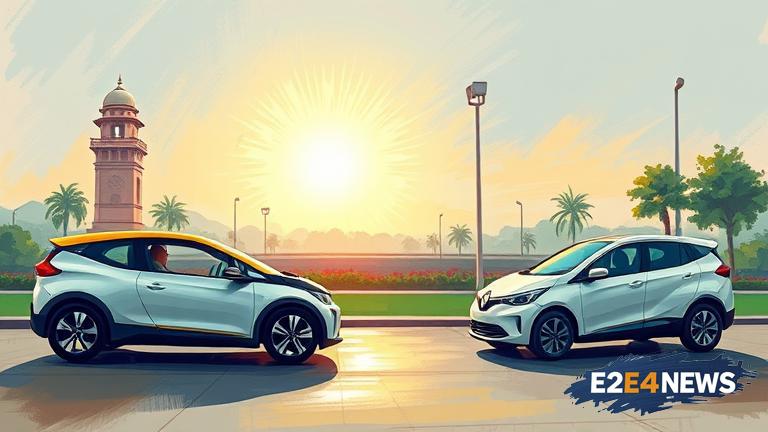The Indian government has announced a comprehensive plan to promote the adoption of electric vehicles (EVs) in the country. The plan includes a range of incentives and initiatives to encourage the use of EVs, including tax breaks, subsidies, and investment in charging infrastructure. The government aims to have at least 30% of new vehicle sales be electric by 2030. To achieve this goal, the government will provide subsidies to manufacturers to produce EVs, as well as to consumers who purchase them. Additionally, the government will invest in the development of charging infrastructure, including the installation of charging stations along highways and in urban areas. The plan also includes measures to promote the use of EVs in public transportation, such as buses and taxis. The government will provide incentives to state governments to adopt EVs for public transportation, and will also encourage private companies to invest in EV-based transportation services. Furthermore, the government will establish a network of EV charging corridors along major highways, to facilitate long-distance travel by EVs. The plan also includes measures to promote the use of EVs in rural areas, where access to charging infrastructure may be limited. The government will provide subsidies to rural households to purchase EVs, and will also invest in the development of off-grid charging infrastructure. The plan is expected to have a significant impact on the environment, as EVs produce zero tailpipe emissions and can help reduce air pollution in urban areas. The plan is also expected to create new job opportunities in the EV manufacturing and charging infrastructure sectors. The government has set a target of having at least 50,000 public charging stations in the country by 2025, and will provide incentives to private companies to invest in charging infrastructure. The plan also includes measures to promote research and development in EV technology, including the establishment of a national EV technology platform. The platform will bring together industry, academia, and government to develop new EV technologies and standards. The government will also provide funding for research and development projects in EV technology, and will encourage private companies to invest in R&D. The plan is expected to have a significant impact on the Indian economy, as it will create new job opportunities and stimulate investment in the EV sector. The government has estimated that the plan will create over 1 million new job opportunities in the EV sector by 2030. The plan is also expected to attract significant investment from private companies, both domestic and foreign. The government has estimated that the plan will attract over $10 billion in investment in the EV sector by 2025. Overall, the plan is a significant step forward in promoting the adoption of EVs in India, and is expected to have a major impact on the environment, economy, and job market. The plan is also expected to help India achieve its climate change goals, as EVs can help reduce greenhouse gas emissions from the transportation sector. The government has set a target of reducing greenhouse gas emissions from the transportation sector by 30% by 2030, and the plan is expected to play a major role in achieving this goal. The plan is also expected to improve air quality in urban areas, as EVs produce zero tailpipe emissions. The government has set a target of reducing air pollution in urban areas by 20% by 2025, and the plan is expected to play a major role in achieving this goal.
